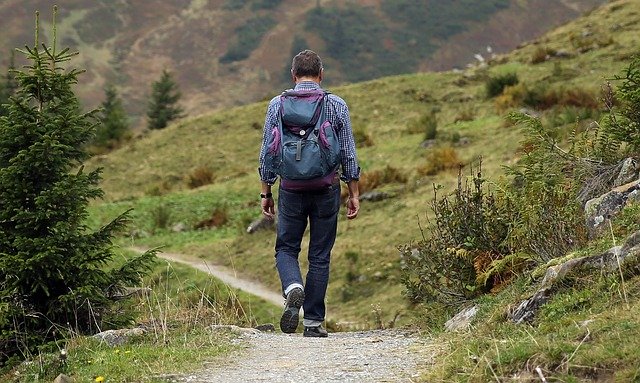If that is the case, then it’s time to start thinking about attending a residential rehab hospital. Rehab is the best option when it comes to recovering from addictions to drugs or alcohol.
If you or someone you know is having a problem with addiction, get in touch with us today to find out more about how we can help you make a full recovery.
Request a Callback
Enter your phone number and a member of our team will call you back to discuss your recovery.
Do I Have an Alcohol or Drug Addiction?
Mostly, addictions start out innocently. Just to try a drug with some friends, or a few drinks after work to de-stress. This can destroy lives over time. Maybe you have noticed that your binge drinking more, or unable to sleep unless you use. There are a few early warning signs of addiction:
- Family history of drug or alcohol abuse
- Frequent binging or loss of control when drinking or using
- Experimentation
- Seeking out friends or activities that involve drugs or alcohol
- Poor mental wellbeing
As addiction grows, so does its severity, here are a few general signs that you or someone you know may have a growing addiction or severe addiction.
- Withdrawal symptoms
- Higher tolerance of the substance
- Taking risks
- Lack of responsibility
- Ignoring relationships
- Becoming withdrawn
- No pleasure in day to day activities
- Loss of control
- Dishonesty
- Secrecy
- No longer doing things they used to enjoy
People struggling with addiction often find ways to justify their behaviour than to admit they have a problem. Whereas someone without addiction and a healthy mind set will identify a negative problem or behaviour and stop it.
A person with an addiction may show changes in their health, some of those signs are:
- Memory loss
- Weight gain/loss
- Seems to be ill all the time
- Bloodshot eyes
- Glazed eyes
- Bad skin/teeth/hair
- Excessive sweating
- Vomiting
- Slurring words
- Speaking very quickly
Different Types of Addiction
There are many different types of addiction, they fall under two categories, substance and behavioural. Addiction is typically when a person cannot abstain from substance or behaviour.
Both types of addiction are just as damaging as the other. Some examples of behavioural addictions are:
- Sex
- Internet
- Games
- Shopping
- Gambling
Whereas examples of substance addiction are:
- Alcohol
- Drugs
- Medication
- Nicotine
- Inhalants
If you or someone you know may be dealing with any of these addictions, it is important to get help.
Negative Long Term Consequences of Addiction
The consequences of alcohol or drug addiction are terrible and often, fatal. People struggling with addiction will notice some of the negative consequences but they will always shrug them off.
They will act as though the consequence isn’t a big deal or it isn’t their fault. Sometimes they will pretend it isn’t happening at all. Addicts struggle to accept they have a problem at all, this is in favour of their addiction.
Admitting the problem is the biggest and hardest step an addict faces. But admitting the problem leads to recovery and prevents long-term effects. Some of those long term consequences are listed below.
- Losing their job
- Being evicted
- Low grades at school/college
- Dropping out of school/college
- Losing parental rights
- Infectious disease (needles)
- Broken relationships with loved ones
- Being arrested
- Debt
- Illness
- Death
Helping Yourself/A Loved One On the Road to Recovery
You may have heard this before, but with addiction, it is completely true, the hardest step is admitting you have a problem. Once you admit it to yourself you can begin the process of recovery.
From there, rehab is the best way to get all of the guidance and assistance you need to get better.
During a stay in rehab, you will receive detox to rid your body from the harmful substance you have been using. From there you will be assessed and put on a personalised treatment programme.
You will receive talk therapies like counselling. You will take part in wellbeing sessions and learn coping strategies. You will also likely have dialetical behavioural therapy.
This proves to be effective in recovery. You will be supported all the way through your journey. You will be educated on your addiction, rebuild and reconnect with loved ones and learn to be self-aware.
After you have left rehab the help doesn’t stop there, you will be guided all the way through the next phase of your life and even assisted with getting a job and place to live.
Support groups will always be made available to you along with therapy. You will never be alone in your recovery.
If you are a family member or friend and want to learn how to support your loved one through their addiction here are a few pointers.
- Educate yourself on addictions and why/how they happen
- Express your concern with them, even if they are relapsing
- Try to keep their environment sober
- Rid as many triggers from their environment as you can
- Offer to attend meetings, therapy sessions or doctors’ appointments with them
- Let them know they are loved and worth the recovery
Finding a Drug and Alcohol Rehab Hospital in Caithness
Are you looking for a drug and alcohol rehab hospital in Caithness? If you or someone you know is struggling with an addiction to drugs or alcohol, get in touch with us today to find out more about how Nova Recovery can help you make a full recovery from your addiction.
When you contact us, our team of friendly, helpful staff will be happy to answer all of the questions you may have about attending a rehab hospital. We will also be able to guide you through the admissions process so that you can feel as comfortable as possible about attending rehab.
You will also learn all of your treatment options and what you can expect when attending a rehab hospital in Scotland for your recovery.
Related News

A Guide To Keeping Up Recovery After Drug Rehab

COVID Tips for Those Suffering from Addictions
